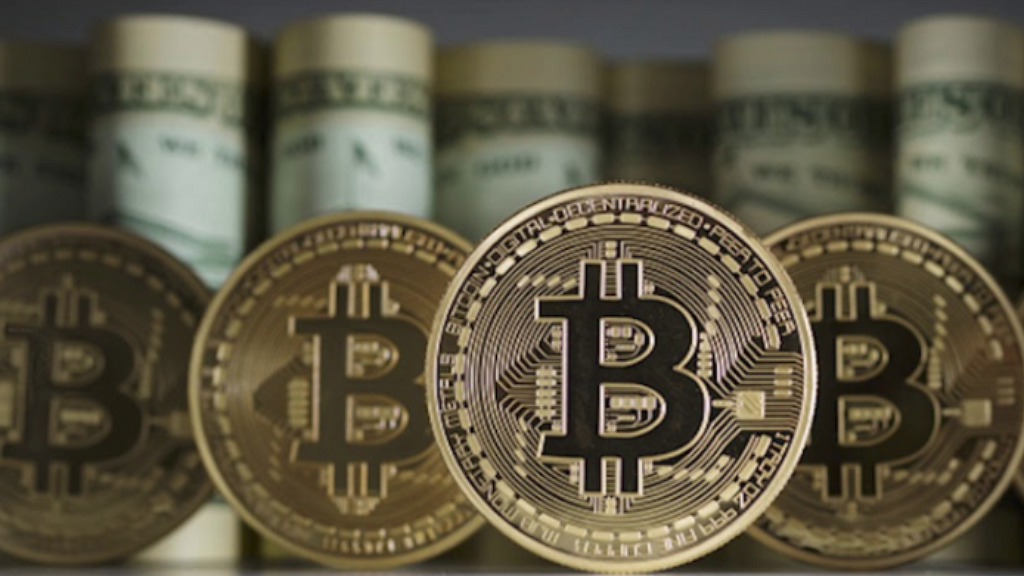Blockchain, Bitcoin to disrupt banking
They are for real and they are going to disrupt the way we do business, banking or even draw up contracts. So, wait for digital currency and a digital ledger to overwhelm you

1 Bitcoin= `6,46,386.02. As I sit down to write, Bitcoin has just surpassed $10,000 for the first time, taking this year’s price surge to more than 10-fold even as warnings multiply that the largest digital currency is an asset bubble.
The World Economic Forum has said that decentralised payment technologies like bitcoin could transform the “business architecture” of money transfers, which, due to reliance on central authorities such as banks and clearing houses, has remained static for the last 150+ years.
Bitcoin’s breaching of the $10,000 high watermark has been a defining moment in many ways. It has brought to fore a piece of technology that was once considered the exclusive domain of high-end computer program developers.
The surge in bitcoin has also drawn our attention to its underlying concept of Blockchain which is becoming the real disruptive force for every industry. But Bitcoin and Blockchain aren’t the same, but closely related. When Bitcoin was released as open source code, blockchain was wrapped up together with it in the same solution.
Since Bitcoin was the first application of blockchain, people often inadvertently used “Bitcoin” to mean blockchain. Bitcoin, also known as a “cryptocurrency,” was launched to bypass government currency controls and simplify online transactions by getting rid of third-party payment processing intermediaries.
This required more than just the money itself. There had to be a secure way to transact with cryptocurrency. Bitcoin transactions are stored and transferred using a distributed ledger on a peer-to-peer network that is open, public and anonymous. Blockchain is the underpinning technology that maintains the Bitcoin transaction ledger
Blockchain, is an idea and not a piece of software. It is a mathematical concept which like mathematics itself is undeniable logic. One is free to make their own software on this idea and still connect with the global network. The idea of Blockchain is that it is a digital ledger, shared among peers, making entries of transactions among its agreed participants; entries that cannot be tampered with or altered. It increases trust, accountability, and transparency across business networks while streamlining business processes.
Blockchain will dramatically transform how some of our business processes work – it can make certain transactions more secure, rendering the record of that transaction tamper-proof. The use cases for a transparent, verifiable register of transaction data are practically endless — especially since blockchain operates through a decentralised platform requiring no central supervision, while remaining resistant to fraud.
How will they impact banks?
The potential of Blockchain to disrupt the banking system comes first to mind and they are the intermediaries of financial transactions between individuals, organizations and even nations. Ironically banks are adopting the concept to revolutionise their operations even before they are disrupted. From a macro perspective, banks serve as the global storehouses and transfer hubs of value.
As a digitised, secure, and tamper-proof ledger, blockchain could serve the same function, injecting enhanced accuracy and information-sharing into the financial services ecosystem. Swiss bank UBS and UK-based Barclays are both experimenting with blockchain to expedite back office functions and settlement, which some in the banking industry say it could cut up to $20 billion in middleman costs.
Closely connected with banking and several key industry requirements is data security. Blockchain has the power to deliver almost bullet-proof data authentication.
Though blockchain’s ledger is public, its data communications are sent and verified using advanced cryptographic techniques — ensuring that data is coming from correct sources and that nothing is intercepted in the interim.
Blockchain for musicians?
If Blockchain is widely accepted it will be increasingly difficult for hackers to break into the system, as the cyber-protections of the technology are more robust than legacy systems. One way blockchain reduces conventional cybersecurity risk is by simply removing the need for human intermediaries — thus lessening the threat of hacking, corruption, or human error.
Creative people like musicians are also turning to blockchain to make content sharing fairer for creators using smart contracts, whereby the revenue on purchases of creative work can be automatically disseminated according to pre-determined licensing agreements or smart contracts ushered in by Blockchain. This will transform the legal system and the way for drawing up contracts. The very basis on good customer service is a contract between the buyer and the seller with a promise to perform a certain task or deliver something in exchange of an agreed compensation.
For this engagement between the buyer and seller to work in a Blockchain principle, there is a need to create a smart contract which will be recorded in the digital shared ledger. The smart contract has the conditions for a transaction to occur. It enables the business rules implied by the contract to be embedded in the blockchain and executed with the transaction. For instance, a smart contract can have a condition for the automatic release of payments, without any human intervention, on the receipt of the agreed goods or services as per the terms of the contract.
In the coming days there will be hardly any industry that will not be disrupted or transformed, depending on your point of view, by Blockchain. We have a choice of being overwhelmed by the coming waves or learning how to ride the surf; and the time to do it is right now.
Follow us on: Facebook, Twitter, Google News, Instagram
Join our official telegram channel (@nationalherald) and stay updated with the latest headlines
